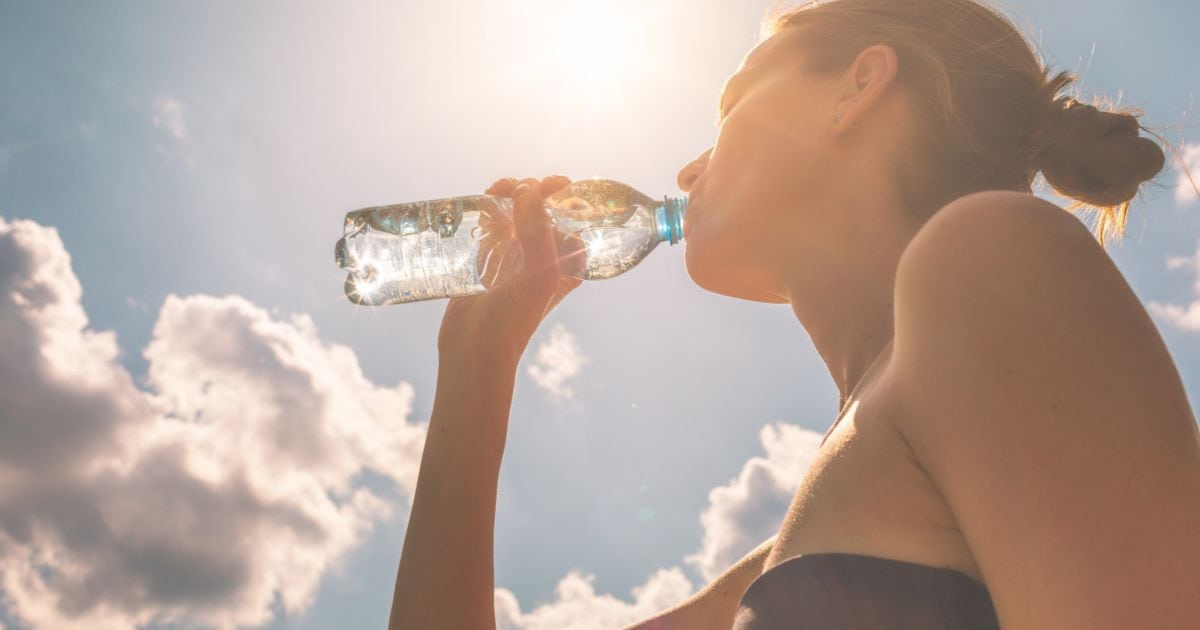To maintain peak health, you need to drink 8-10 cups of water daily. Water is crucial for body functions and overall well-being. Factors like activity levels and climate impact your hydration needs. Signs of dehydration include dark urine and fatigue. Children need 6-8 cups, while adults require 8-10 cups of water daily. Athletes should monitor water intake for best performance. Adding electrolytes replenishes lost minerals. Stay mindful of hydration tips for summer. Proper hydration enhances cognitive function and mood. Remember, understanding hydration levels is key to your health and vitality.
Key Takeaways
- Daily water needs vary but aim for 8-10 cups.
- Hydration regulates body temperature and aids digestion.
- Dehydration leads to fatigue, headaches, and health risks.
- Water intake influences energy levels and overall wellness.
- Proper hydration is crucial for peak bodily functions.
Importance of Hydration
Ensuring proper hydration is essential for maintaining peak bodily functions and overall health. Water plays a pivotal role in various bodily processes, such as regulating body temperature, transporting nutrients and oxygen to cells, and removing waste products. In fact, water makes up about 60% of your body weight and is crucial for the proper functioning of organs, tissues, and cells.
Dehydration can lead to a range of negative effects on your body, including fatigue, dizziness, headaches, and even more severe complications like kidney stones or urinary tract infections. To prevent dehydration, it’s important to drink an adequate amount of water each day. The general recommendation is to consume about 8-10 cups of water daily, but individual needs may vary based on factors such as age, gender, activity level, and climate.
Monitoring your hydration status is essential, especially during hot weather or when engaging in physical activities. Thirst is a good indicator that your body needs more fluids, but it’s pivotal not to rely solely on thirst as a signal to drink water. Remember, staying properly hydrated is key to supporting your body’s optimal function and overall well-being.
Water and Health Benefits
Staying hydrated is essential for maintaining overall wellness and health.
Water plays a pivotal role in keeping your body functioning at its best, from regulating body temperature to aiding in digestion.
Ensuring you drink enough water daily can contribute to increased energy levels and a healthier lifestyle.
Hydration and Wellness
Achieving ideal hydration levels is essential for maintaining overall wellness and reaping the numerous health benefits that come with sufficient water intake. Hydration plays a pivotal role in various bodily functions, such as regulating temperature, aiding digestion, and lubricating joints.
Proper hydration supports cognitive function, mood stability, and skin health. Dehydration can lead to fatigue, headaches, and impaired physical performance. To guarantee top-notch wellness, aim to drink at least 8-10 cups of water per day, adjusting for factors like physical activity and climate.
Water for Vitality
Sufficient hydration is vital for maintaining vitality and experiencing the numerous health benefits associated with proper water intake. To help you understand the critical role water plays in your vitality, consider these four key points:
- Energy Boost: Adequate hydration supports your body’s energy levels, helping you feel more alert and focused throughout the day.
- Nutrient Transport: Water facilitates the transportation of essential nutrients to cells, ensuring optimal functioning of your body.
- Detoxification: Proper hydration aids in flushing out toxins and waste products from your system, promoting overall health and well-being.
- Skin Health: Hydration is essential for maintaining skin elasticity and hydration, leading to a vibrant and healthy complexion.
Factors Affecting Hydration Needs
To maintain ideal hydration levels, understanding the different factors that influence your body’s water needs is crucial. Several factors can impact how much water your body requires on a daily basis. By being aware of these factors, you can adjust your water intake accordingly to guarantee proper hydration.
| Factor | Description | Impact |
|---|---|---|
| Physical Activity | The more you exercise, the more water you lose | Increased need for water to replace lost fluids |
| Climate | Hot and humid weather leads to more sweating | Higher water intake needed to prevent dehydration |
| Diet | Diets high in salt or protein increase water needs | Additional water required to process and eliminate waste |
Considering these factors, it’s important to tailor your water intake to meet your body’s specific requirements. By adjusting your hydration habits based on these influences, you can make sure that you stay adequately hydrated throughout the day.
Dehydration Signs and Risks
Recognizing the signs and risks of dehydration is vital for maintaining proper bodily function and overall health. Dehydration can occur when the body loses more fluid than it takes in, leading to an imbalance that can have serious consequences. Here are some common signs and risks of dehydration to watch out for:
- Thirst: Feeling thirsty is one of the first indicators that your body needs more water.
- Dark Urine: Urine that’s dark yellow or amber in color can be a sign of dehydration.
- Dry Mouth: A dry or sticky feeling in your mouth can indicate that you need to hydrate.
- Fatigue: Dehydration can lead to feelings of fatigue and decreased energy levels.
In addition to these signs, dehydration can also pose risks such as impaired cognitive function, heat-related illnesses, kidney stones, and even seizures in severe cases. It’s essential to stay vigilant and make sure you’re consuming an adequate amount of water to prevent dehydration and maintain peak health.
Hydration Recommendations by Age
As you explore hydration recommendations by age, it’s crucial to take into account the specific water needs associated with different stages of life. Factors such as activity levels, climate, and health conditions can influence how much water individuals of varying ages should consume.
Understanding these age-specific hydration guidelines can help you maintain peak health and well-being.
Age-Specific Water Needs
Different age groups have varying hydration needs that are essential for maintaining peak health and well-being.
- Infants: Infants under six months old primarily get their hydration from breast milk or formula. It’s important to make sure they’re adequately nourished to meet their fluid requirements.
- Children and Adolescents: Kids aged 1-18 years should aim for 6-8 cups of water per day, depending on age and activity level.
- Adults: Adults generally need about 8-10 cups of water daily, but individual requirements vary based on factors like weight, activity level, and climate.
- Elderly: Older adults are at higher risk for dehydration, so it’s crucial for them to drink water regularly throughout the day, even if they don’t feel thirsty.
Factors Affecting Hydration Levels
Factors influencing hydration levels vary across age groups and play an important role in determining the specific water intake recommendations for each demographic. Hydration needs can differ based on age due to varying metabolic rates, body compositions, and activity levels. Below is a table outlining general hydration recommendations by age group:
| Age Group | Daily Water Intake Recommendations (Liters) | Daily Water Intake Recommendations (Cups) |
|---|---|---|
| Infants | 0.7 – 1.0 | 4 – 6 |
| Children | 1.0 – 1.5 | 6 – 9 |
| Adolescents | 1.5 – 2.0 | 9 – 13 |
| Adults | 2.0 – 3.0 | 13 – 20 |
| Elderly | 1.5 – 2.5 | 9 – 15 |
Water Intake for Athletes
To optimize performance and prevent dehydration, athletes must closely monitor and maintain their water intake levels throughout training and competition. Proper hydration is essential for athletes to perform at their best and avoid the negative effects of dehydration.
Here are some key points to keep in mind when it comes to water intake for athletes:
- Pre-Exercise Hydration: Drink about 17-20 ounces of water 2-3 hours before exercise to guarantee sufficient hydration.
- During Exercise Hydration: Consume 7-10 ounces of water every 10-20 minutes during exercise to replace fluids lost through sweating.
- Post-Exercise Hydration: Aim to drink 24 ounces of water for every pound of body weight lost during exercise to rehydrate effectively.
- Monitoring Hydration Levels: Check your urine color; pale yellow indicates good hydration, while dark yellow may suggest dehydration.
Hydration Myths Debunked
Misconceptions surrounding hydration often lead to confusion and may impact your understanding of water needs. Let’s debunk some common myths to help you stay properly hydrated.
Myth #1: You only need to drink water when you’re thirsty. Thirst is a sign of dehydration, so waiting until you feel thirsty means your body is already lacking fluids. It’s vital to drink water regularly throughout the day.
Myth #2: All beverages contribute equally to your hydration. While beverages like coffee, tea, and soda do provide some fluids, water is the best choice for staying hydrated. These other drinks may have diuretic effects, causing you to lose more fluids.
Myth #3: You can rely on foods for all your hydration needs. While fruits and vegetables contain water, they shouldn’t be your sole source of fluids. Drinking water is essential for maintaining proper hydration levels.
Tips for Staying Hydrated
To stay hydrated, remember to drink water regularly throughout the day, especially in hot weather.
Adding electrolytes to your water can help replenish minerals lost through sweat.
When exercising, be mindful of your fluid intake to maintain ideal hydration levels.
Hydration Tips for Summer
Staying properly hydrated during the summer months is essential for maintaining peak health and well-being. Here are some practical tips to help you stay hydrated:
- Drink Plenty of Water: Aim to drink at least 8-10 cups of water daily.
- Carry a Water Bottle: Keep a reusable water bottle with you to sip on throughout the day.
- Eat Hydrating Foods: Include fruits like watermelon, cucumber, and oranges in your diet.
- Avoid Excessive Alcohol and Caffeine: These beverages can contribute to dehydration, so consume them in moderation.
Importance of Electrolytes
Understanding the role of electrolytes in maintaining proper hydration levels is essential for overall health and well-being. Electrolytes are minerals like sodium, potassium, and magnesium that help regulate fluid balance in your body.
When you sweat or consume water, electrolytes are lost and need to be replenished to support various bodily functions. Sodium, for example, helps retain water and maintain blood pressure, while potassium is vital for muscle function and nerve signaling.
Including electrolyte-rich foods like bananas, nuts, and leafy greens in your diet can help guarantee you maintain a healthy electrolyte balance. Additionally, sports drinks or electrolyte supplements can be beneficial, especially after intense exercise or prolonged periods of sweating.
Hydration and Exercise
Proper hydration during exercise is essential for optimizing performance and preventing dehydration. To stay hydrated during your workouts, follow these tips:
- Pre-hydrate: Drink about 17-20 ounces of water 2-3 hours before exercising.
- During exercise: Consume 7-10 ounces of water every 10-20 minutes during your workout.
- Post-workout: Replenish fluids by drinking 16-24 ounces of water for every pound lost during exercise.
- Monitor hydration: Check your urine color; pale yellow indicates proper hydration.
Monitoring Your Hydration Levels
To keep track of your hydration levels effectively, consider utilizing a reliable hydration monitoring device or app. These tools can provide valuable information on your fluid intake, sweat rate, and electrolyte balance. By monitoring your hydration status, you can guarantee you’re meeting your body’s water needs and avoid dehydration.
Hydration monitoring devices use various methods to assess your hydration levels. Some devices measure sweat sodium concentration, while others track changes in body weight to estimate fluid loss. Hydration apps, on the other hand, allow you to log your daily fluid intake and physical activity to give you a complete view of your hydration status.
Regular monitoring of your hydration levels is especially important during exercise, hot weather, or illness when fluid requirements may increase. By staying informed about your hydration status, you can make necessary adjustments to your fluid intake to maintain the best hydration levels and support overall health and performance.
Hydration and Overall Well-being
Monitoring your hydration levels is essential for maintaining overall well-being and peak bodily function. Proper hydration impacts your health in more ways than you might realize. Here are four key aspects of how hydration influences your well-being:
- Cognitive Function: Dehydration can lead to cognitive impairment, affecting your concentration, alertness, and short-term memory.
- Physical Performance: Even mild dehydration can decrease physical performance, making you feel fatigued and reducing endurance.
- Digestive Health: Water aids in digestion and prevents constipation, promoting a healthy digestive system.
- Mood and Emotions: Hydration levels can impact mood and emotional state, with dehydration potentially leading to increased anxiety and irritability.
Conclusion
So, now that you know the importance of hydration and how much water you really need, it’s time to put that knowledge into action.
Remember, staying hydrated is key to maintaining your overall well-being. Don’t let dehydration sneak up on you – drink up and feel the benefits of keeping your body properly hydrated.




